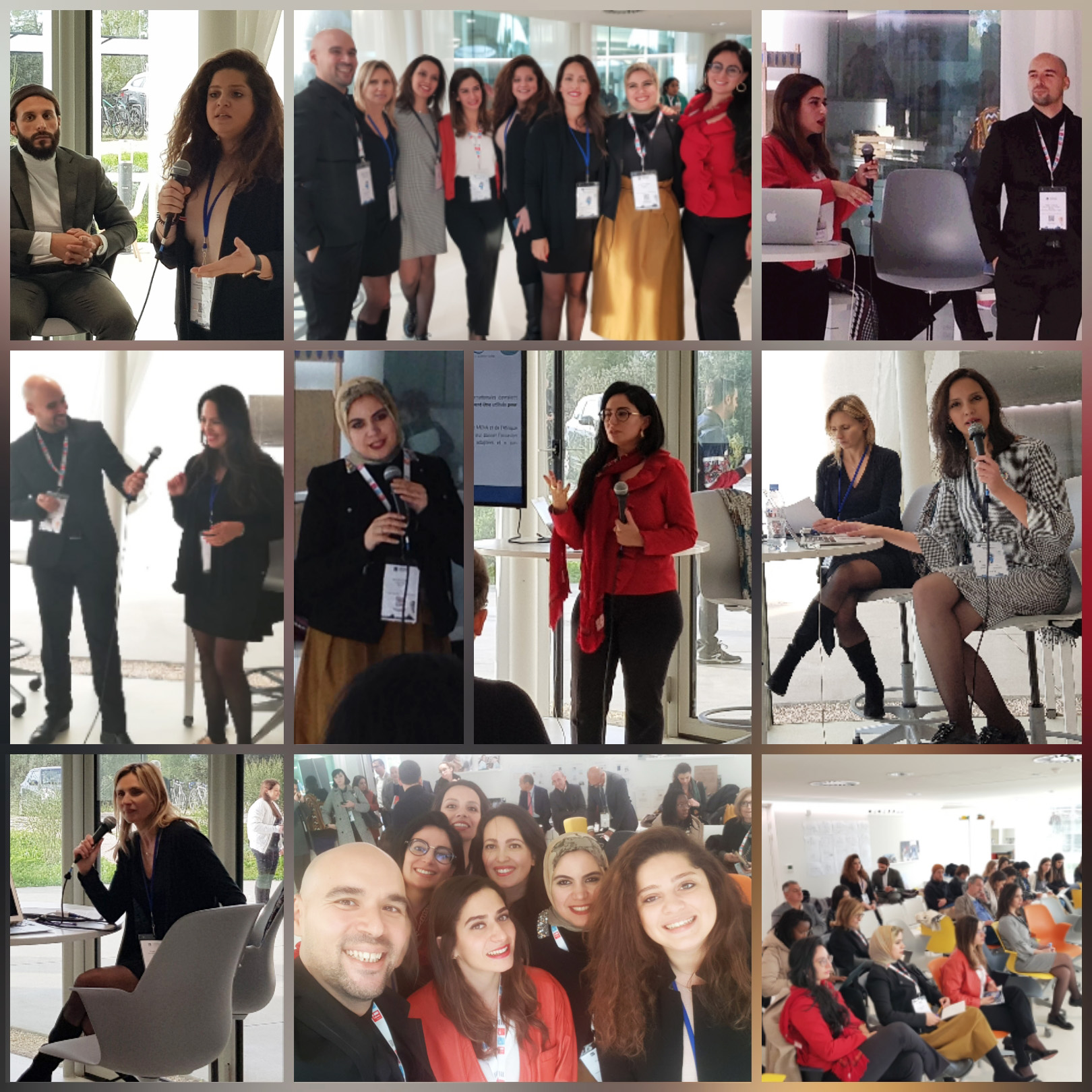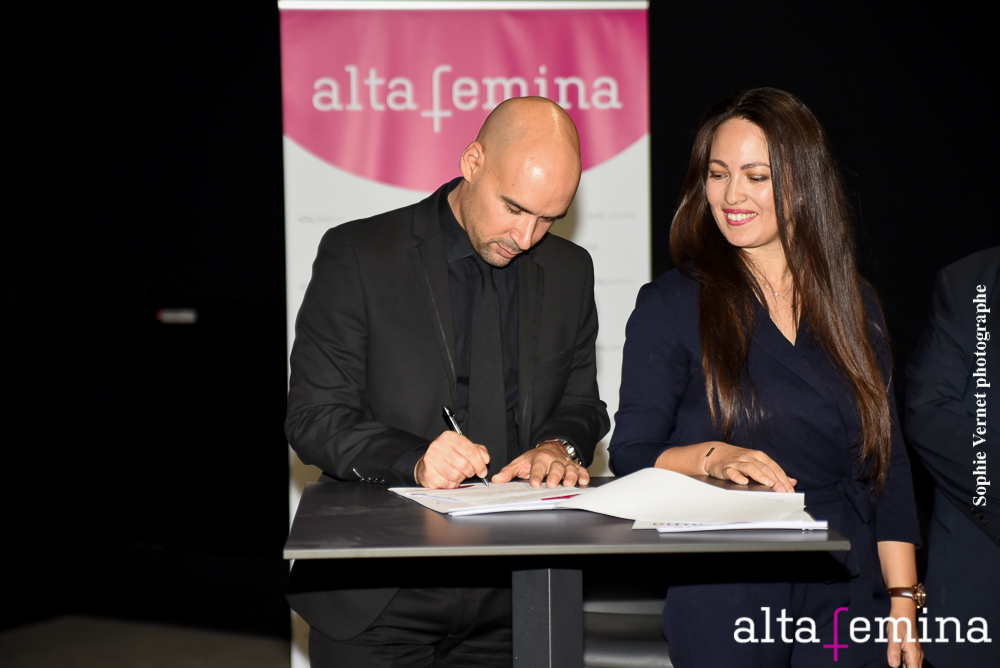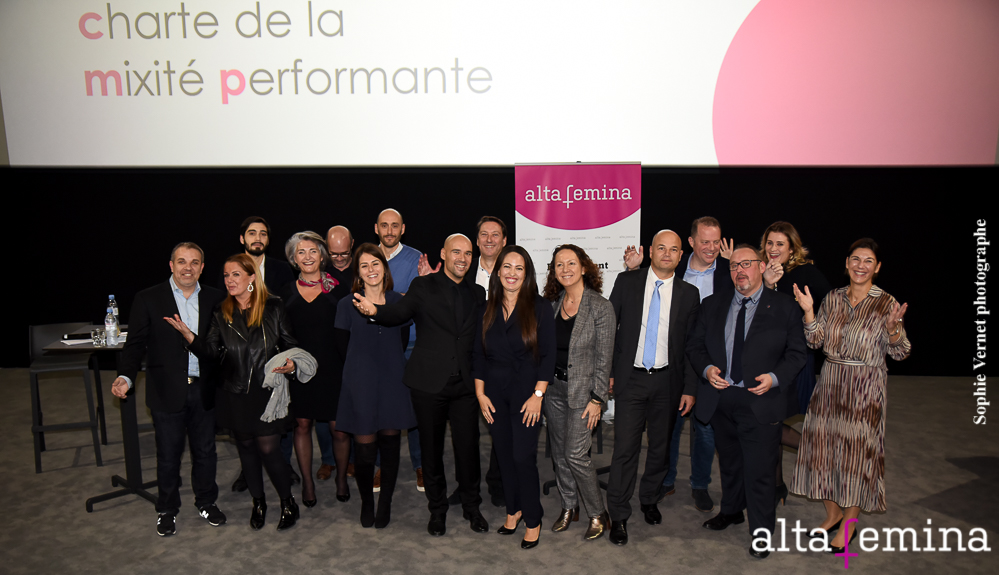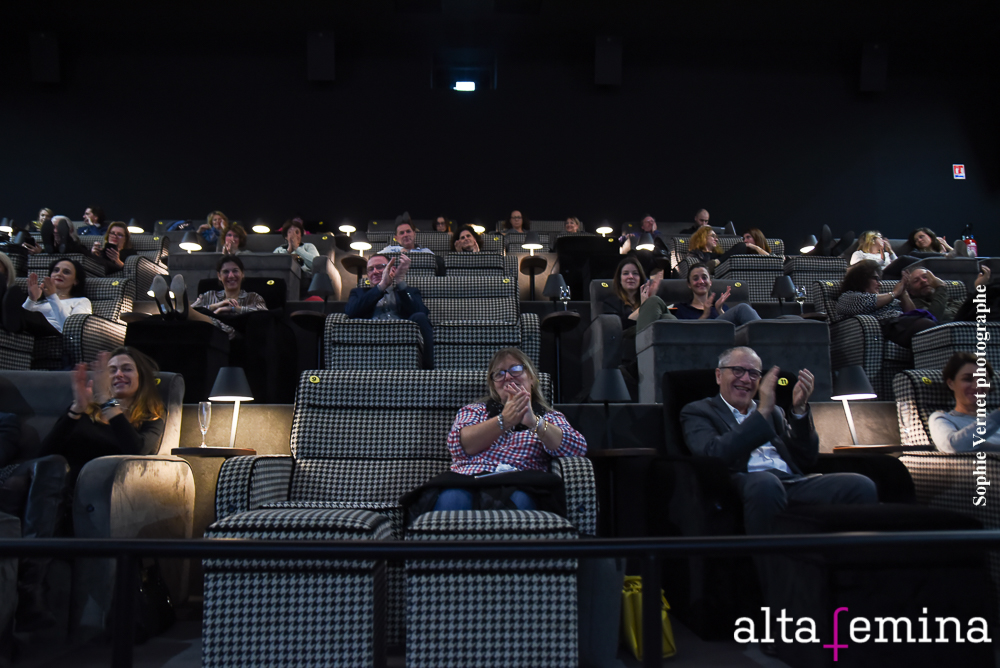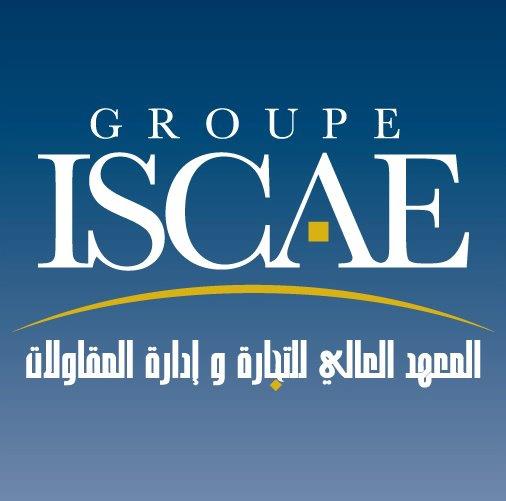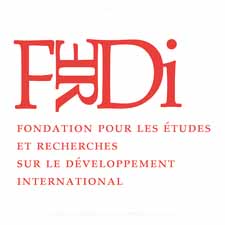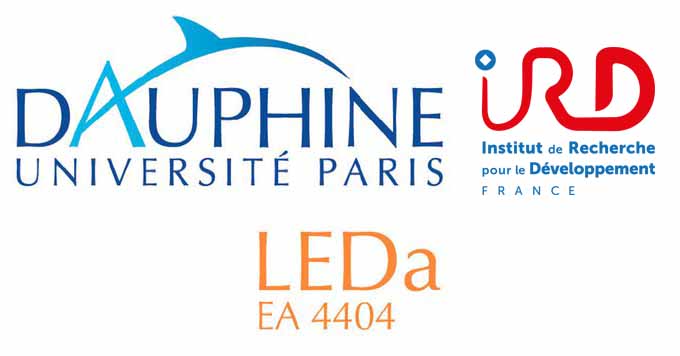The Covid-19 epidemic which has been shaking the planet since December has had a resounding health and economic impact in the countries of the Mediterranean basin, which are simultaneously confronted with the refugees crisis, political instability and the weakness of social protection systems. In a concise format of analysis, written in “Policy Brief” form, the Euro-Mediterranean Forum of Institutes of Economic Sciences (FEMISE) and the Center for Mediterranean Integration join forces, warn against the risks associated with COVID-19 and lay the foundations for a new path for Euro-Mediterranean cooperation.
42 billion dollars in losses in the Arab countries linked to the pandemic and 8.3 million people at risk of poverty… Initial estimates by the United Nations Economic and Social Commission for West Asia give an idea of the scale of damage caused by the pandemic, by containment measures and by the closing of borders which undermines the tourism industry.

Constantin Tsakas, general secretary of FEMISE
“In the MENA region, a 10% contraction in GDP could exacerbate the upward trend in poverty until reaching levels of 30 years ago … the current emergency could transform the many health, social and economic crises in a humanitarian crisis… ”writes Femise under the pen of its secretary general Constantin Tsakas.
Femise and the CMI have been working for decades on Euro-Mediterranean cooperation. As Econostrum had announced , the two structures have laid the foundations for a collaboration dedicated to finding new avenues of reflection, inviting researchers to make short and long-term proposals. Thus in the first analysis on ” Implications of the coronavirus crisis in the Mediterranean and in the Middle East“, Constantin Tsakas insists on the importance of relaunching regional cooperation in the fields of health and in key sectors.
Strategic choices to prevent a “pandemic of inequalities”

Indeed, the weight of the informal economy in the countries of the Mediterranean basin de facto deprives 65% of workers of any social protection. Among them, one finds 12 million refugees, mainly Syrians to be found in Jordan, Lebanon, Turkey. ©HCR
“Central banks must continue to play their role, so far they have generally well reacted, by injecting the liquidity they had “, underlines the analysis which points to the little room for maneuvering in terms of budgetary revenues to support recovery and sectoral plans. According to the Brief, the digital sector, social entrepreneurship, social finance and access to basic healthcare are strategic choices to prevent a “pandemic of inequalities“.
Indeed, the weight of the informal economy in the countries of the Mediterranean basin de facto deprives 65% of workers of any social protection, leading to an increasing insecurity of these populations. Among them, one finds 12 million refugees, mainly Syrians to be found in Jordan, Lebanon, Turkey … Fragile populations that are even more exposed to the coronavirus.
Regional initiatives, whether it be on tourism, renewable energies, digital transformation or education, deserve to be reinforced because they help countries to jointly tackle the challenges posed, concludes the Brief. The pandemic, which has highlighted the need to bring production closer to consumption centers in order to guarantee the supply of essential goods, also opens up new perspectives for intelligently rethinking production chains, for a better integration between the EU and the southern and eastern Mediterranean countries.
This first CMI-FEMISE Policy Brief, available here, paves the way for further analysis that will be explored throughout this series, highlighting the key role of cooperation in the Mediterranean.



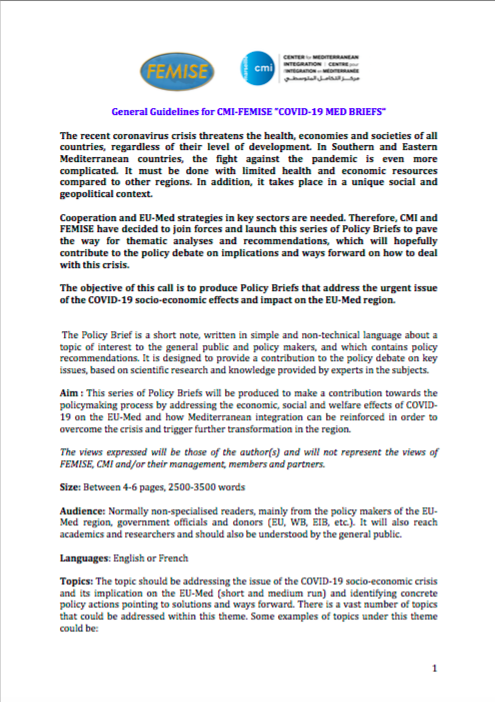
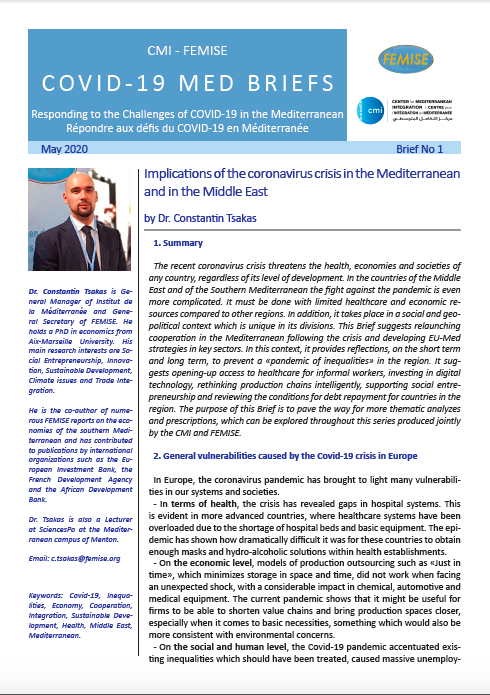

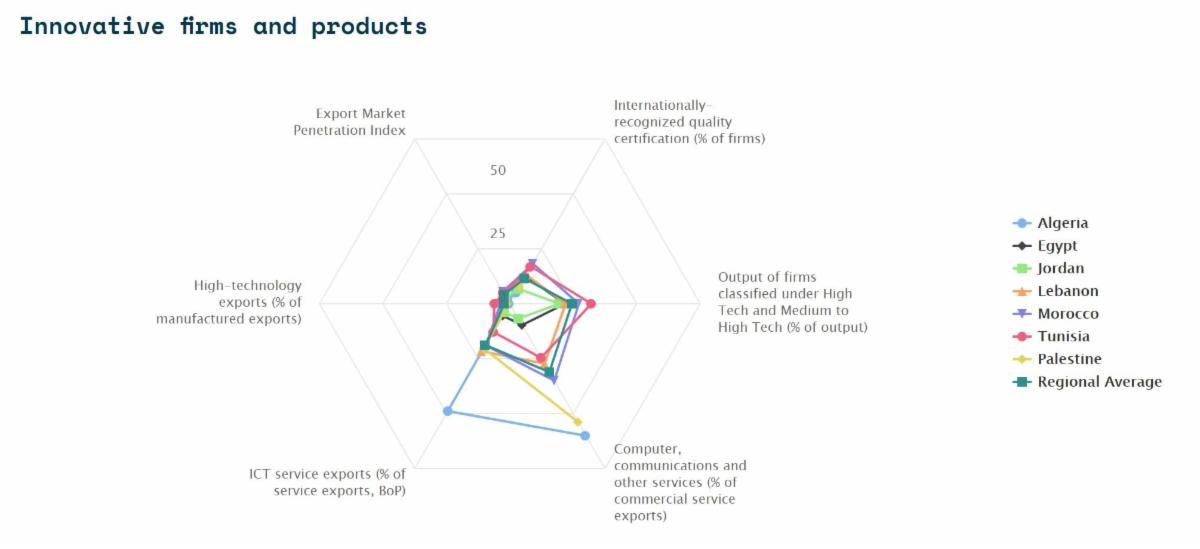
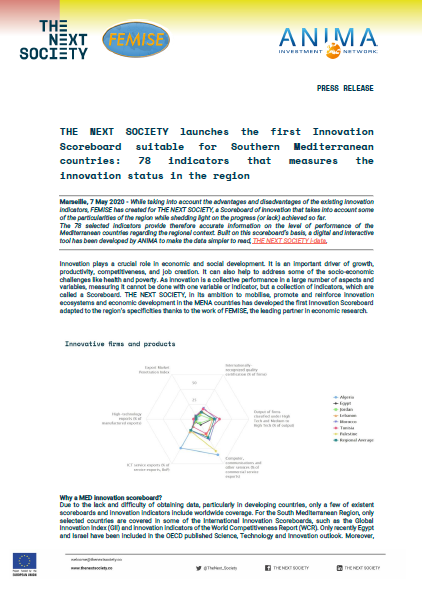
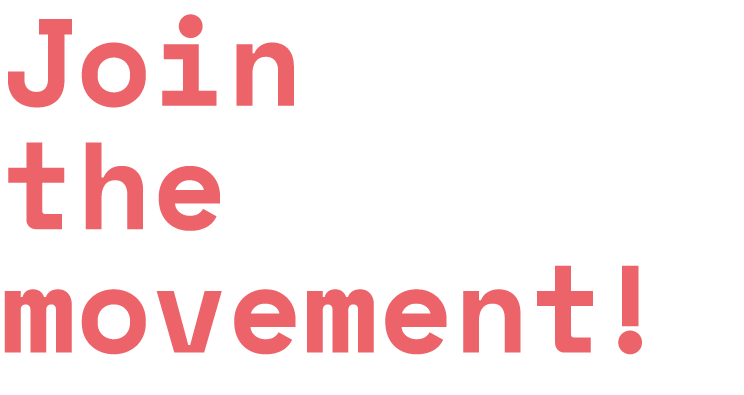
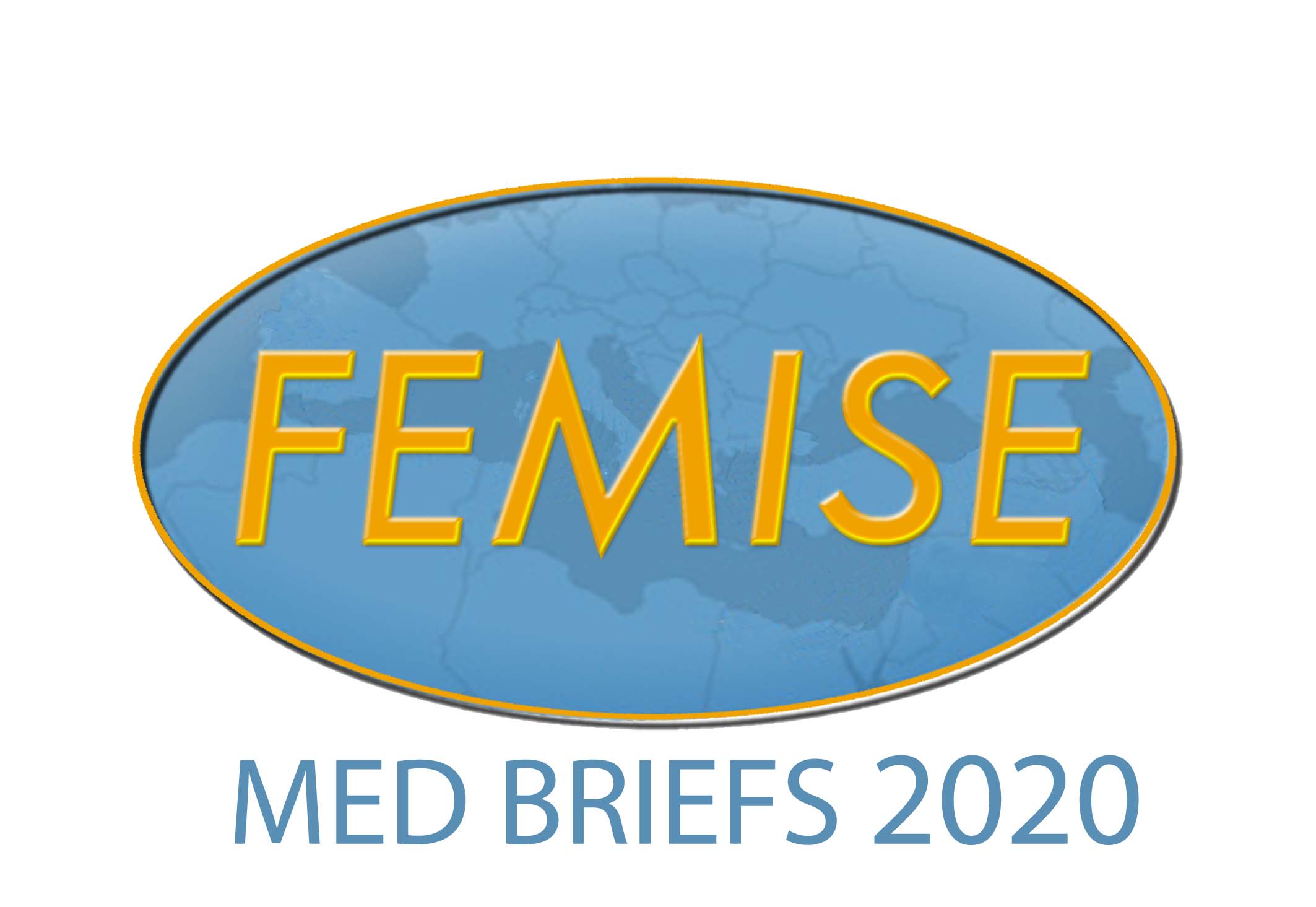 FEMISE is inviting all researchers and experts to submit original Policy Briefs based on recent research conducted on policy, economic and security issues relevant to the EU-Med region and Africa.
FEMISE is inviting all researchers and experts to submit original Policy Briefs based on recent research conducted on policy, economic and security issues relevant to the EU-Med region and Africa.
